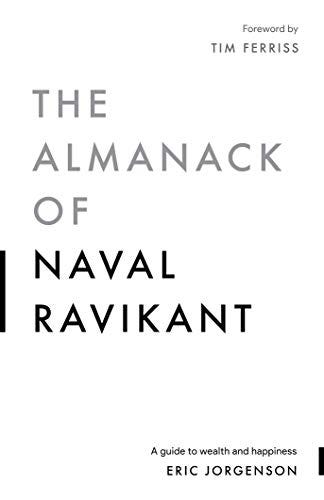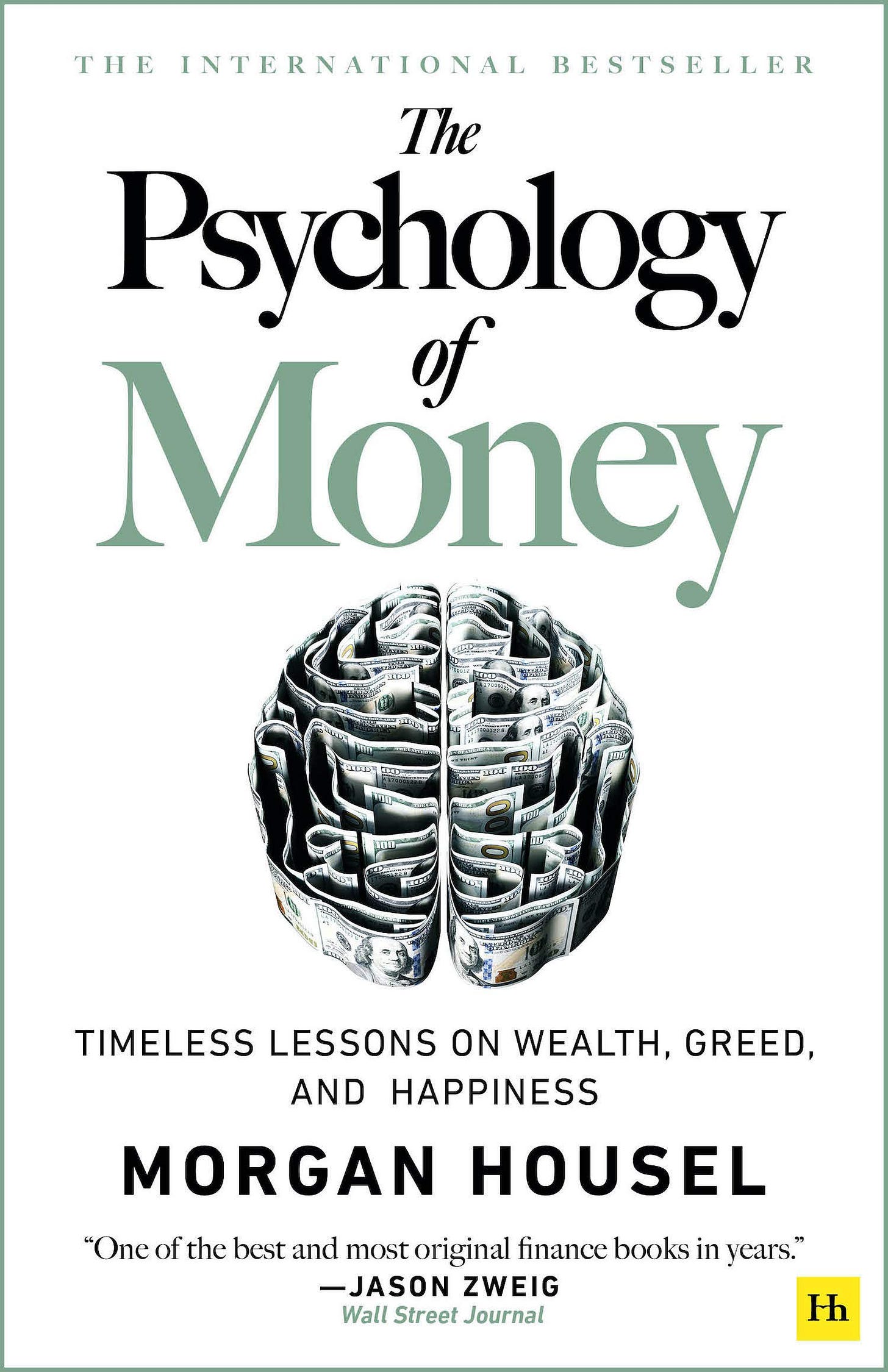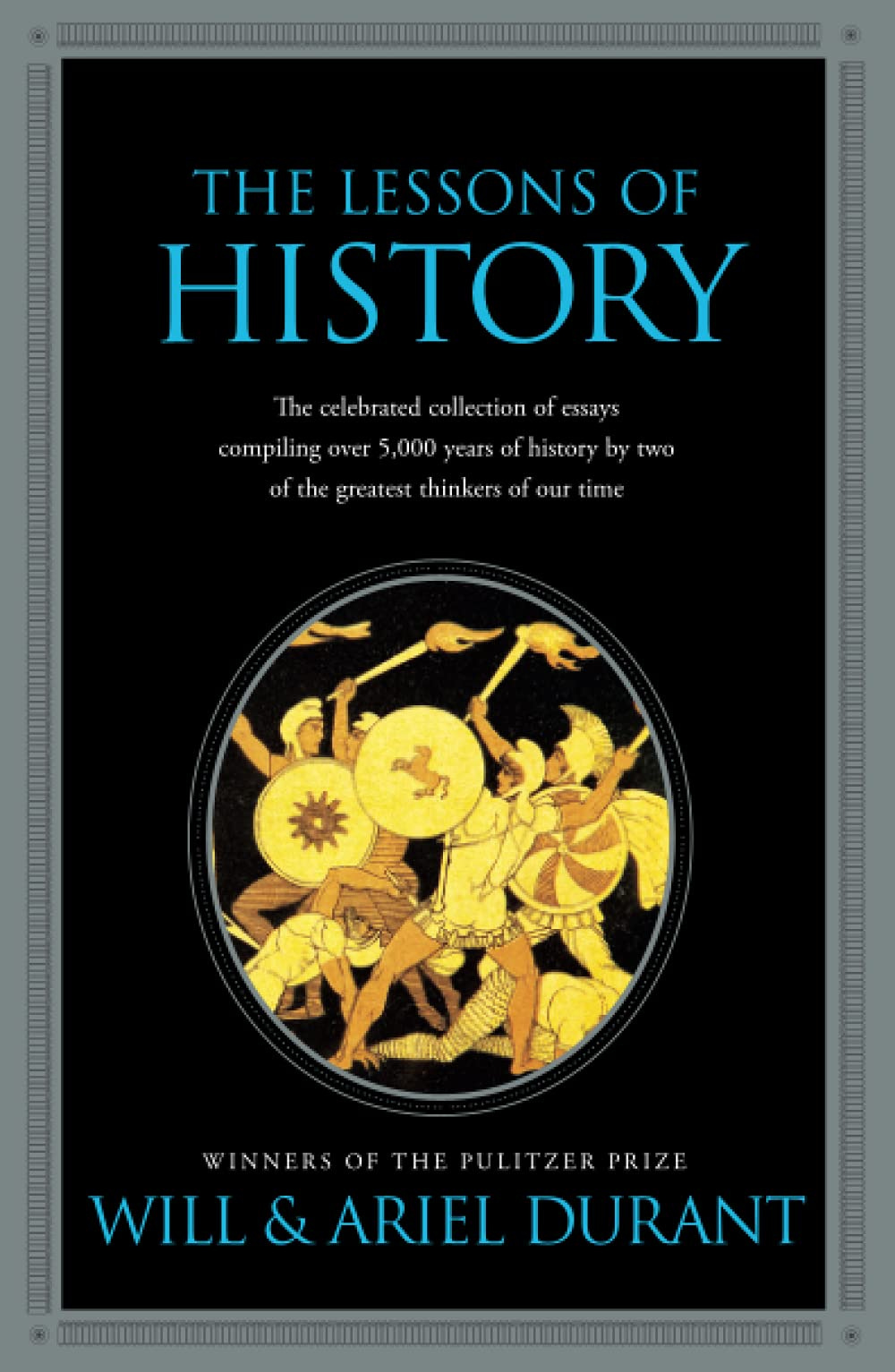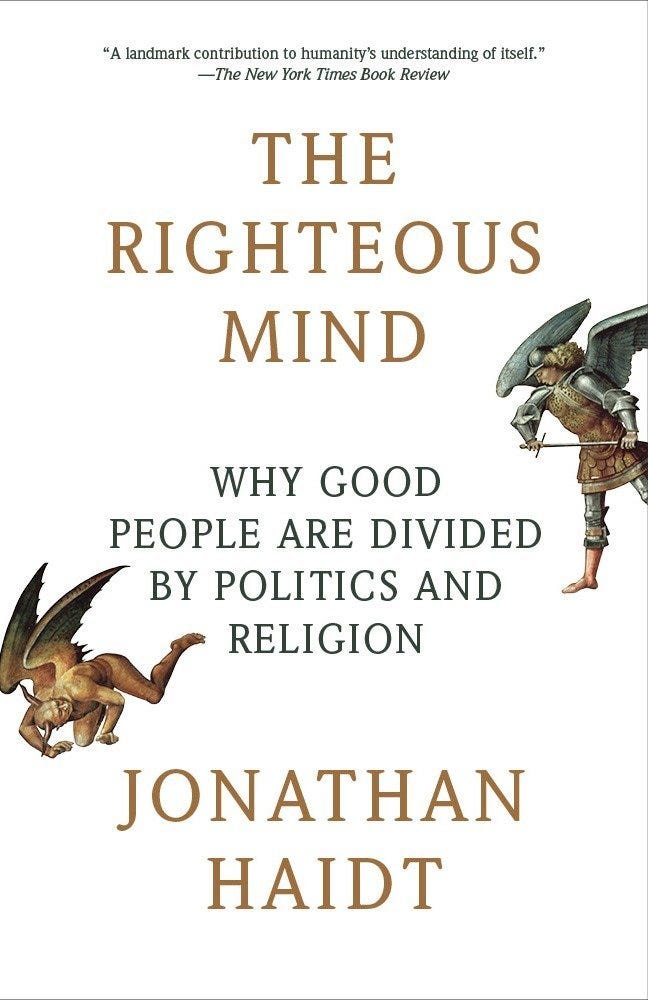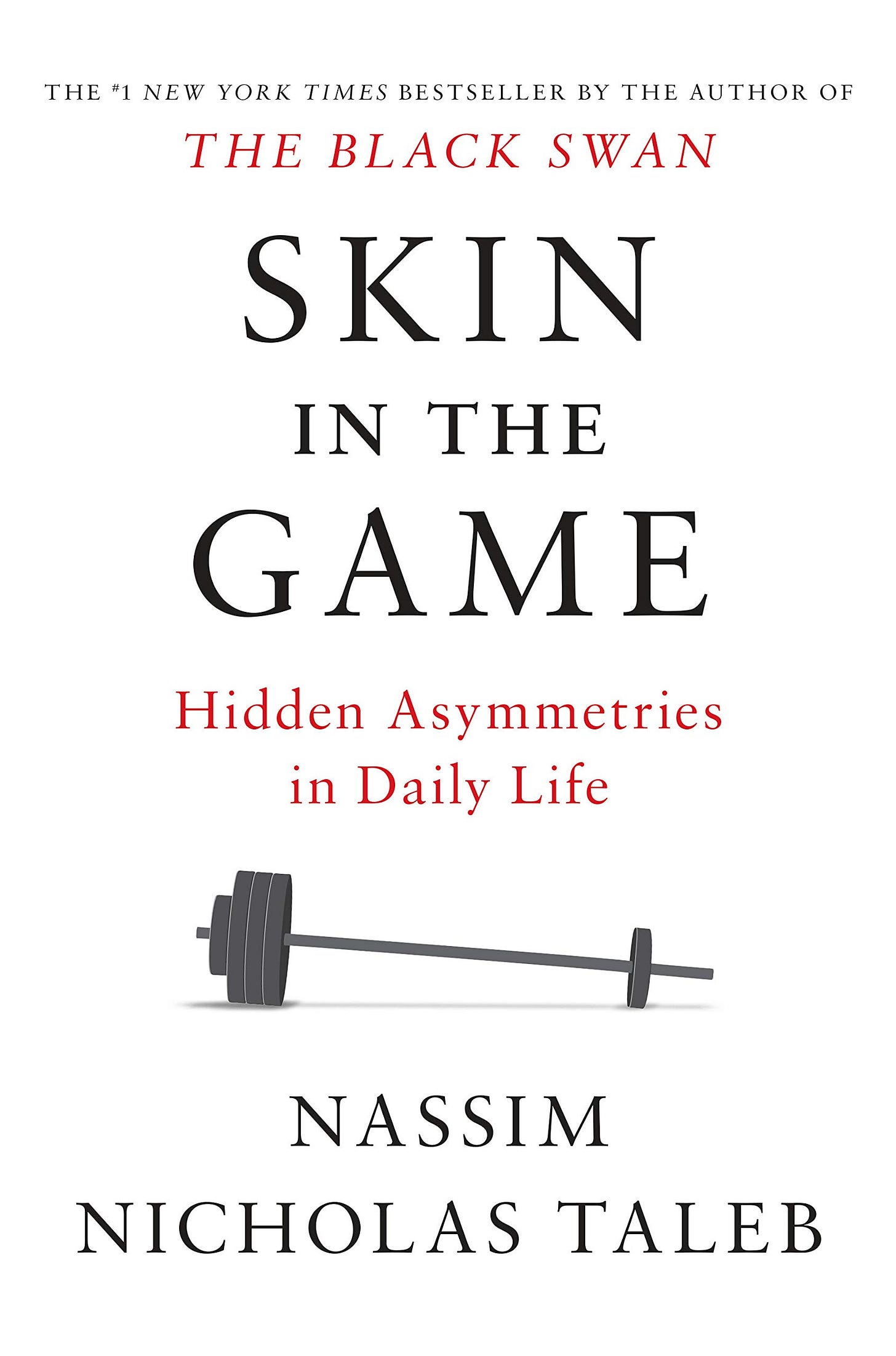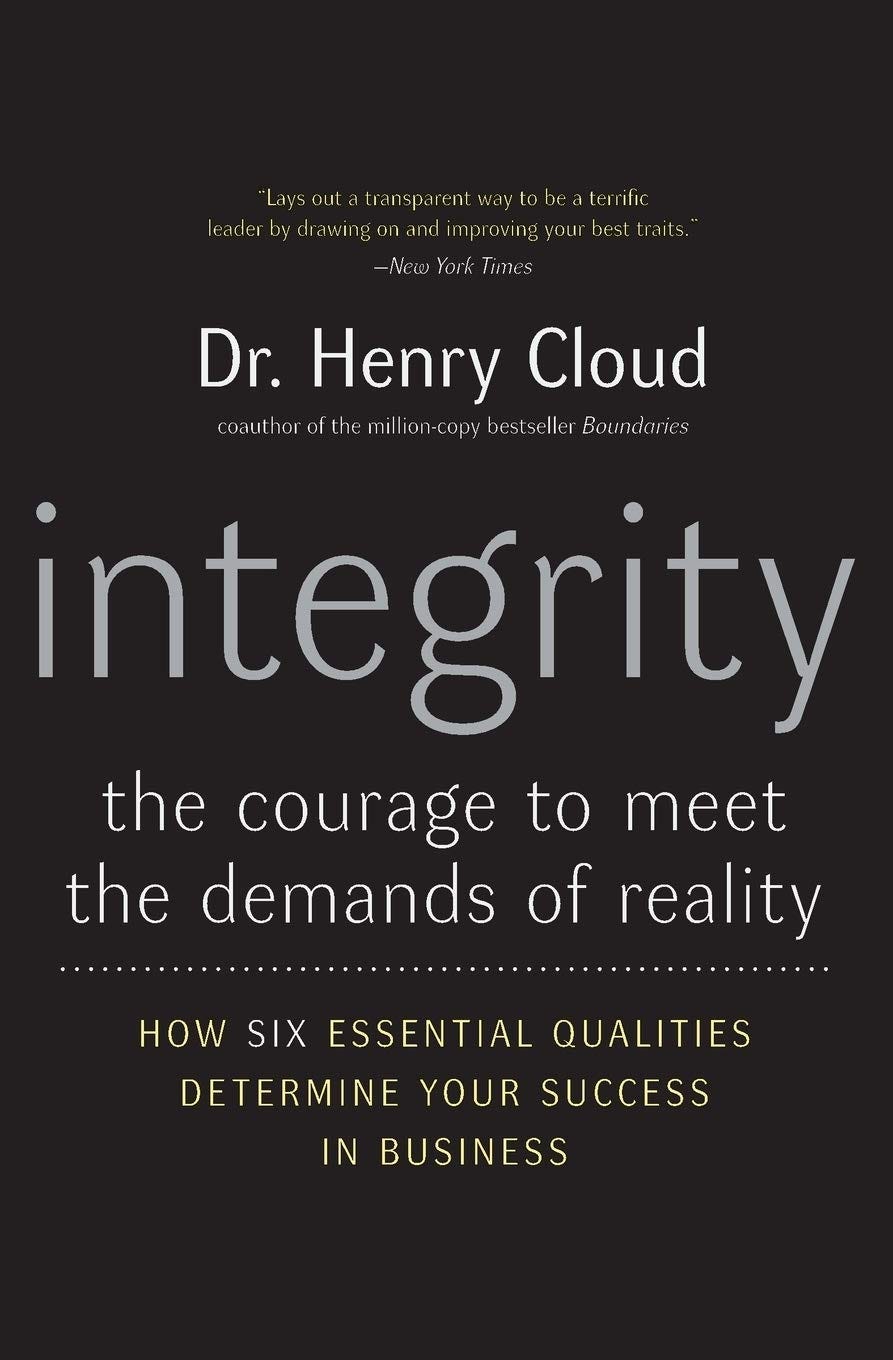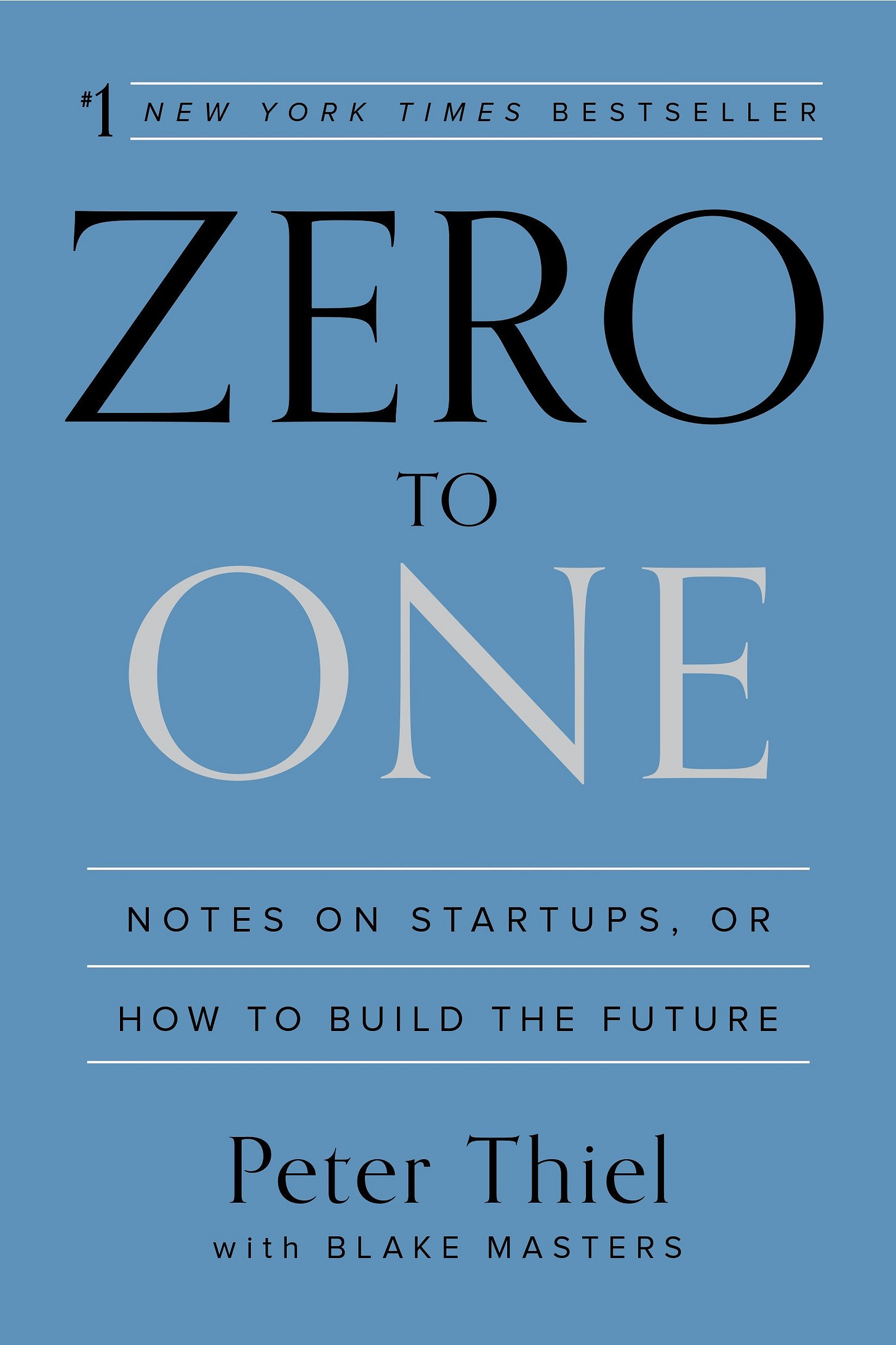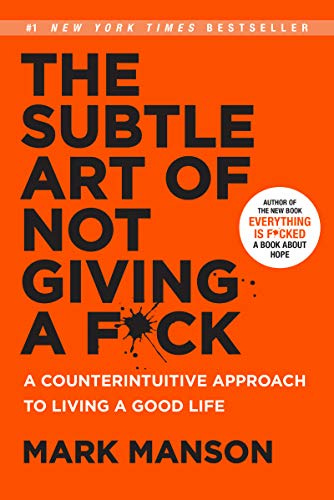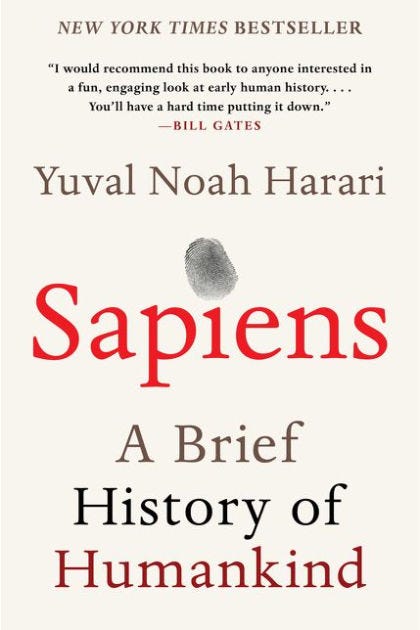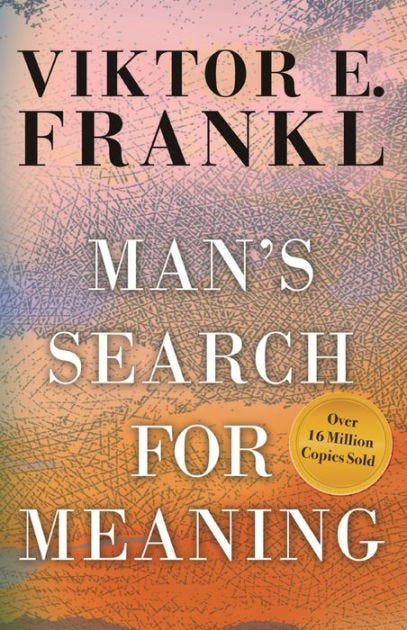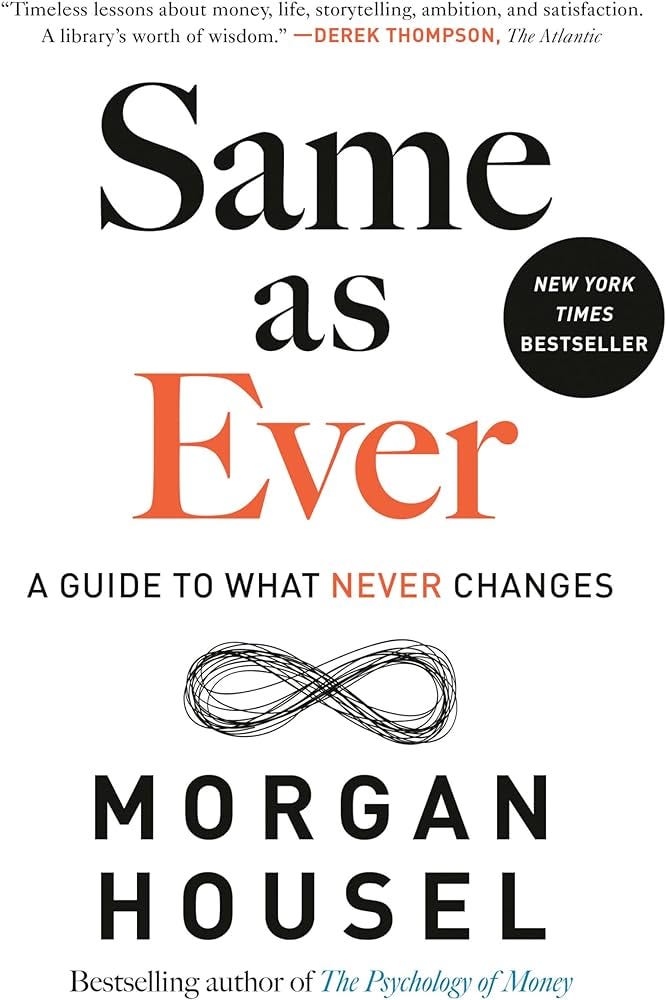Lessons from the Books I've Read
Musings on books I've read. One living document to rule them all.
“In my whole life, I have known no wise people (over a broad subject matter area) who didn’t read all the time – none, zero”. - Charlie Munger
Reading is the most important habit that I have cultivated in the past year. It’s one of the highest value activities I do and one of my favorite ways to spend my time. Although reading books requires a large time commitment and usually provides no immediate ROI (return on investment), I have found that the benefits are usually subtle and that the large returns come from the long-term compounding of knowledge.
By reading books I get to: grow my knowledge, expand my thinking, and get inside the minds of some of the smartest people in the world (or in history).
This is an living post documenting lessons and takeaways from my favorite books that I’ve read.
Books mentioned in this blog:
The Almanack of Naval Ravikant - by Eric Jorgenson
The Psychology of Money - by Morgan Housel
The Lessons of History - by Will & Ariel Durant
The Righteous Mind - by Jonathan Haidt
Skin in the Game - by Nassim Nicholas Taleb
Integrity - by Henry Cloud
Zero to One - by Peter Thiel
The Subtle Art of Not Giving a F*ck - by Mark Manson
Sapiens - by Yuval Noah Harari
Man’s Search for Meaning - by Vikor Frankl
Same as Ever - by Morgan Housel
The Almanack of Naval Ramikant by Eric Jorgenson
All of the greatest returns in life whether it be in business, relationships, knowledge, skills, wealth, etc comes from the long-term through compound interest.
Happiness is a choice and it comes from within. Happiness is not achieved through external circumstances but is a skill that can be learned and cultivated through habits.
Allow yourself time in solitude. Busy schedule = busy mind. You are able to think more clearly when you do less, not more. The best ideas come when you’re bored, not when you’re stressed or running around and rushed.
“We evolved for scarcity but live in abundance”
Avoid playing zero-sum games in life (ie status games) that make you angry and toxically competitive. Nobody can beat you at being you. You escape the competition trap by being authentic.
“Play stupid games, win stupid prizes”
Creating wealth involves taking risks, doing the thing you love to do and doing it better than anyone else, accepting accountability, and applying leverage. That is where fortunes are made.
“Earn with your mind, not your time”
The love of money is bad because it’s a bottomless pit. You’ll never have enough. And when you have it, you become paranoid and fearful you’ll lose it. The best way to stay away from the love of money is to not upgrade your lifestyle as you make more.
Finding great relationships is often done by finding other people whose core values line up with yours. If your values line up, the little things don’t matter.
You should be able to control your mind, not the other way around. This is done through meditation which includes observing your mind & listening to yourself. Self-awareness and self-discovery is a life long process.
“Meditation is intermittent fasting for the mind”
The Psychology of Money by Morgan Housel
How you behave is a lot more important than what you know.
You can be the smartest, most analytical investor, but if your behavior is bad, you will not be able to succeed.
Compounding is the most powerful force in investing.
Compounding does not rely on huge returns. It relies on good returns sustained for long periods of time. A lot of people talk about Buffet’s success and contribute it to his investing acumen. While skill undoubtedly played a huge role in his success, the real key to his success was his longevity. He was not just an amazing investor for a handful of years. He was an amazing investor for around three-quarters of a century.
Compounding works best when you give it time. Therefore, endurance is key. Having a margin of safety is essential for investment success because it lets you endure a range of potential outcomes which is most likely to happen since the outcome of events are rarely binary. Investing in companies you care about can be the necessary motivation that enables you to have endurance and prevents you from giving up and moving on
The value of cash may not be from the returns it brings, but the behavior it promotes.
“If cash prevents you from having to see your stocks during bear markets, the actual return you earned on that cash is not 1% a year — it could be many multiplied of that, because preventing one desperate, ill-timed stock sale can do more for your lifetime returns than packaging dozens of big-time winners”
Performance and commitment to a strategy during its lean years are pretty correlated. The odds in the short-term are 50/50, but over the long term the odds of success increase. Staying in the game gives you an advantage.
Most stock market and economic forecasts are terrible and inaccurate. But, it’s human nature to try to predict what’s going to happen. It’s scary to try to navigate the market/economy when you have no idea what the future holds so it makes sense that people want to try to forecast what’s going to happen.
The most important economic events in the future are probably going to be events that history gave us little to no guide about.
“Investing is not a hard science. It’s a massive group of people making imperfect decisions with limited information about things that will have a massive impact on their wellbeing, which can make even smart people nervous, greedy, and paranoid”.
You have to take risks to get ahead, but no risk that can wipe you out is ever worth taking. You have to survive to succeed.
No matter how appealing it looks, if there is a chance you can be ruined, it’s not a risk worth taking (leverage). A good way of avoiding this is by avoiding single points of failure (extreme concentration).
Everything worthwhile has a price, whether visible or not. The same goes for investing.
The price of investing in the stock market is not dollars and cents. It’s volatility, fear, doubt, uncertainty, and regret.
“Few things matter more with money than understanding your own time horizon and not being persuaded by the actions and behaviors of people playing different games than you are”.
“When investors have different goals and time horizons — and they do in every asset class — prices that look ridiculous to one person can make sense to another because the factors those investors pay attention to are different”
When you hear investment advice like stock picks, etc, keep in mind that they don’t know who you are and what game you’re playing.
“Short term traders operate in an area where the rules governing long-term investing — particularly around valuation — are ignored because they’re irrelevant to the game being played”.
The Lessons of History by Will & Ariel Durant
Inequality is natural. Humans are born unequal. Genetic inequalities lead to inequalities in intelligence, social status, economics, etc and the differences grow as civilization becomes more complex. The concentration of wealth is a direct result of the natural concentration of ability.
Freedom and equality oppose each other. “When one prevails, the other dies” In a free, laissez-faire society there will be inequality (America, England). To check inequality, liberty must be sacrificed (hence socialism and communism).
The fear of capitalism compels socialism to widen freedom. The fear of socialism compels capitalism to increase equality. They will likely meet in the middle.
Free markets invigorate competition and evoke the productiveness and natural inventiveness of men. Competition compels excellence.
Democracy is the most difficult form of government because it requires the widest spread of intelligence. If equality of educational opportunity is established, democracy can flourish. But when economic freedom fails to distribute wealth the road to dictatorship will open up.
Religion has played an important role in society throughout history. No society has successfully maintained moral life without the aid of religion.
War has been a constant in history. It is the ultimate form of competition and natural selection and is necessary for world order.
History may not repeat, but it does “rhyme” because human nature stays consistent and we are subject to responding to stimuli (huger, danger, sex) in stereotyped ways.
The Righteous Mind by Jonathan Haidt
People have intuitive, gut reactions to everything they perceive. Moral judgment occurs rapidly because of our intuition, and reasoning follows as a post-hoc search to justify our reactions to others. “Intuition comes first, strategic reasoning comes second”.
People care more about their appearance and reputation than reality. Haidt analogizes our moral thinking to politicians trying to win votes, rather than scientists trying to discover the truth.
Morality binds people together into ideological teams but blinds them to the validity, coherence, or even existence of other moral matrices. In order to understand another group, know what they sacralize and which moral foundations carry the most weight.
Understanding evolution is a necessary pre-condition for understanding morality. While moral foundations are innate, they evolved and were shaped in response to evolutionary challenges.
People don’t choose the labels “liberal” or “conservative”. Their brains are already intuitively partisan. Whether you’re liberal or conservative is largely determined by personality which is strongly influenced by genes. So whether you end up on the right or left is just as heritable as many other traits.
Haidt lays out the “moral foundations theory” to show that a set of core moral foundations can explain the differences between liberals and conservatives. Liberal views rest heavily on the Care and Fairness foundation. These foundations support the idea of social justice. They define themselves by their opposition to hierarchy, inequality, and power. Conservatives view the six foundations equally which is why Haidt writes that conservatives are better able to understand liberals and are able to resonate with more voters.
Haidt suggests that liberals and conservatives are like yin and yang - both are necessary elements of a healthy state of politics. Moral communities are fragile - hard to build, easy to destroy. Every community is at risk of two opposite dangers: ossification and dissolution.
While most of human nature was shaped by natural selection at the individual level, our minds evolved for teamwork. Throughout time, the more cohesive a tribe was, the more successful they were. Natural selection favored increasing tribalism and our genes and culture co-evolved.
Humans have a dual nature. We are both selfish and groupish. We have the ability to transcend self-interest and become a part of a larger whole. It is here when we find our greatest joys. Haidt calls this ability the “Hive Switch” and gives three examples (awe, drugs, raves) of ways we flip the switch.
Religion binds and blinds. Religions bind people into moral communities, but it also blinds as once something is declared sacred (person, book, principle), devotees can no longer question it or think clearly about it.
One quote to sum it all up: “Our minds were designed for groupish righteousness. We are deeply intuitive creatures whose gut feelings drive our strategic reasoning. This makes it difficult - but not impossible - to connect with those who live in other matrices, which are often built on different configurations of the available moral foundations”
Skin in the Game by Nassim Nicholas Taleb
Skin in the game means having exposure to the real world and paying a price for the results whether good or bad. It’s about reality, not appearances.
When you have skin in the game, you get direct feedback from reality. This acts as a filtering mechanism. When people are exposed to the consequence of their actions only the robust survives. There is no evolution without skin in the game.
Time removes the fragile and keeps the strong. Time is the most effective judge of things (ie ideas, businesses, technologies, etc).
The most motivated rule. A motivated minority is all it takes to disproportionately move the needle. Society evolves in an asymmetric way, not by consensus, majority, etc.
The highest status is that of freedom and freedom is always associated with risk-taking. Complete freedom is a threat to organizations so they seek to “own” people by conditioning and by tweaking things so that people have skin in the game and will lose something significant if they rebel against authority.
Lack of skin in the game produces distortions. People who operate without skin in the game (or skin in the right game) seek the complicated and avoid the simple. There are many professions that reward perception, not results. People in bureaucratized systems are incentivized to overcomplicate things to appear convincing. Practitioners do the opposite and get feedback from reality.
The difference between talk and “talk” is revealed through one’s actions when they take risks, have something at stake, and something they can lose in case they are wrong. The same thing goes for beliefs. How much one truly believes in something is manifested only by what they are willing to risk for it.
Being dishonest is not a sustainable way of doing business. No compensation is worth the feeling of shame. No person in a transaction should have certainty about the outcome while the other has uncertainty.
Courage (the willingness to take on risk) is the only virtue you cannot fake. Entrepreneurs are heroes in society, they take risks and fail for us. The greatest companies of our generation were all founded by entrepreneurs with skin and soul in the game.
Integrity by Henry Cloud
Character is one of the biggest determinants of whether or not someone becomes successful. You can be smart and competent but if you do not have good character, you won’t go that far. Who a person is will ultimately determine their success. Character always wins in the end.
It’s the big things, not ourselves, that make our lives bigger. The paradox is that to live bigger, we have to humble ourselves and become smaller. If we don’t recognize and submit to transcendence and live just for ourselves, we will be subject to living a small life.
Connecting with others in a way that makes them feel understood and valued is the key to building trust and loyalty. Trust comes from the heart, and to win another person’s heart, you first have to understand and connect with them.
Ultimate trust is built when there is grace and when both parties know that the other wants the best for them.
Knowing yourself is vital to doing well in life. However, we often are not able to see ourselves accurately. Seeking feedback from others and finding out who you truly are is an opportunity to face the truth, learn more about yourself, and grow.
Everyone fails at one point. Real winners are able to accept their losses, learn from their mistakes, and move on.
Face your problems head on and view them as a way to get to your desired outcome. Running away and hiding from your problems does nothing except prolong the issue. If you don’t confront a problem, you won’t be able to experience the “profit” of the resolution.
People who do well in life have a well-defined identity. They know who they are. When people are secure in their identity, they don’t let external performance and others’ perceptions regulate how they feel about themselves. True self-security is internal, not external.
Confront people in a way that will bring about a positive “wake”. When you confront people, it is important you say what needs to be said but in a way that shows you care about the other person.
To grow requires one to be authentic with themselves and to be able to step outside of their comfort zone and take calculated risks. Life is a constant journey of growth. Those who stay stagnant live dull lives and do not fulfill their potential.
Seek reality in all aspects of your life whether it be in business, relationships, yourself, etc. Keep an open mind when facing new realities and have the courage to embrace whatever you find.
Success and fruitfulness are just as much about “who” you are, then “what” you do. In the same way, material investments grow as they are put to use, so does character. Investing in character will give you greater returns than what you could do just by focusing on your work.
Zero to One by Peter Thiel
Every time we create something new and better we are going from 0 to 1. The way to do this is to think for yourself by throwing out the playbook and rethinking business from scratch.
The single most powerful pattern I have noticed is that successful people find value in unexpected places, and they do this by thinking about business from first principles instead of formulas.
Thiel believes that competition is an ideology and only erodes profits and distracts companies from working on what really matters. The end goal of every successful business is to escape the competition and become a (creative) monopoly.
Creative monopoly means new products that benefit everybody and sustainable profits for the creator. Competition means no profit for anybody, no meaningful differentiation, and a struggle for survival.
Every startup should start with a small market and dominate it. Once it dominates a niche market, then it can gradually expand into broader markets (e.g. - Amazon). Startups should not seek to disrupt incumbents, but rather avoid competition as much as possible.
Every great company is built on secrets that are hidden from the outside world. Peter writes that they are many more secrets to be found but they will only be found by relentless searchers who look where no one else is looking.
A great company is a conspiracy to change the world
Thiel Law: A startup messed up at its foundation cannot succeed in the long term. You cannot create a great company with a flawed foundation. Getting this right is the first job of any founder and it starts with the people.
Companies are often destroyed through internal misalignment. Incentive pay encourages short-term thinking and value grabbing often at the expense of value creation in the future. Equity (vested interest) is the best way to keep everyone in the company broadly aligned and orient people toward creating value in the future.
A startup is a team of people on a mission. During PayPal’s early days, Peter hired not based on talent and resume, but people who would work well together and who were obsessed with the mission. Small groups of people bounded by a sense of mission have changed the world for the (e.g. - America)!
Unique founders are invaluable and the world needs them. Value creation cannot simply be reduced to formulas and applied by professionals. We need unusual individuals to lead companies beyond mere incrementalism. (Steve Job’s return to Apple showed just how irreplaceable founders are).
It is not guaranteed that the future will be better. We need to work to create it today by focusing on singular ways to go from 0 to 1. This starts by thinking for yourself, being bold, and taking risks.
Only by seeing our world anew, as fresh and strange as it was to the ancients who saw it first, can we both re-create it and preserve it for the future.
The Subtle Art of Not Giving A F*ck by Mark Manson
You can’t avoid problems. When a person has no problems, the mind finds ways to invent them.
In life, we have a limited amount of fucks to give. So you must choose your fucks wisely.
Life is suffering. It’s inescapable. But suffering has utility. Pain is instructive. It’s what inspires people to make positive changes in their lives.
This constant dissatisfaction has kept our species fighting and striving, building and conquering. So no, our own pain and misery aren’t a bug of human evolution; they’re a feature.
You are defined by what you are willing to suffer for. Your successes in life won’t be determined by what you want to enjoy, it will be determined by what you’re willing to suffer for and what pain you can sustain. The joy is in the climb and it comes from solving the problems that you enjoy solving.
Our culture is constantly highlighting the extreme ends of the bell curve, the exceptional. But the truth is, most people by definition are not exceptional. This sounds bleak, but the acceptance of your own mundane existence can free you to accomplish what you truly want.
Good, healthy values are achieved internally. Bad values are reliant on external events and things you cannot control. Self-improvement is really about prioritizing better values and choosing better things to care about. Finding things that are important and meaningful to care about (or as he says, give a fuck about 😆 ) is perhaps the most productive use of our time and energy. Better problems = better life.
For change to happen in our lives, we must first be wrong about something because that is what will open up the opportunity for growth. Instead of searching for certainty, we should strive for uncertainty and search for doubt. We are the architects of our own beliefs and they’re often wrong.
Uncertainty is the root of all progress and all growth. The man who believes he knows everything learns nothing.
The only way to truly be successful at something is if we accept and are willing to fail. Feeling free to fail will propel you forward.
Trust is the most important ingredient in any relationship and conflict is a necessary component of building trust. Conflicts show us who is there for us unconditionally and who is just there for the benefits. “No one trusts a yes man”.
Death is the only thing we know is certain. Therefore it should be the compass by which we orient our values and decisions. The only way to become comfortable with death is to understand and view yourself as something bigger than just you.
Once we become comfortable with the fact of our death, we can then choose our values more freely, unrestrained by the illogical quest for immortality, and freed from dangerous dogmatic views.
Sapiens by Yuval Noah Harari
Our species (homo sapien), are just one of several human species that have existed throughout history. Just like there a several different species of the same animal (ie - dog, zebra, rabbit), there were several species of humans living on Earth (at least six different types have been confirmed).
The thing that sets humans apart from other animals and what enables us to be the ruler of the world is our intelligence and ability to communicate. Human language is unique because it enables them to communicate fiction/myths. These myths provide the glue that binds people together and allow us to cooperate in large numbers. Yuval argues that all large-scale human cooperations (ie church, states, tribes, etc) are rooted in common myths that only exist in our imaginations.
The real difference between us and chimpanzees is the mythical glue that binds together large numbers of individuals, families, and groups. This glue has made us the masters of creation.
Yuval argues that since the Cognitive Revolution, humans have been living in two realities. The objective reality (ie - the natural world) and the imagined reality (nation-states, money, companies, etc).
The Agricultural Revolution permanently changed how humans lived. Up until then, for 2.5 million years, humans fed themselves by gathering plants and hunting animals. Yuval writes that the Agricultural Revolution is history’s biggest fraud and a trap because while yes, it did increase the number of people that could live, it made their standard of living worse.
Throughout most of history, people have lived in small tribes. We do not have a natural instinct for mass cooperation. However, by creating “imagined realities” built through shared myths, large amounts of people have been able to cooperate effectively. Yuval writes that these imagined realities create order, not because it is objectively true, but because believing in it enables us to cooperate and forge a better society. These myths have to be continuously reinforced or else the order will collapse. These imagined orders are so embedded into our society that they shape the way we think, our desires, and our relationships. To change them, we’d need to change the consciousness of billions of people.
a way of thinking about this is using basketball as an example. Basketball has rules and ideas that are entirely imaginary, but when everyone shares them, they can all play the same game. Thus, although we don’t have the rules hard-wired into our genes we are still able to play with complete strangers.
Equality and freedom contradict each other. “Equality can be ensured only by curtailing the freedoms of those who are better off”. Yuval writes that the entire political history of the world since 1789 can be seen as a series of attempts to reconcile this contradiction.
Money is not coins and banknotes. It is anything that people are willing to use to represent the value of other things for the purpose of exchanging goods and services. Trust is the ultimate material that all types of money are minted from. Yuval writes that money is just a psychological construct. Everyone always wants money because everyone else always wants money. It is the most universal and efficient system of mutual trust ever invented.
Whereas religion asks us to believe in something, money asks us to believe that others believe in something.
Yuval writes that the crucial role of religion throughout history was giving superhuman legitimacy to the imagined order and that the greatest impact it had on the world was in the rise of homo sapiens as almost every major religion had a lens that the world was a reflection of the relationship between humans and the world.
Trust is the foundation of any economy and the belief in the future is the fuel. Credit revolutionized the economy as it enabled people to build the present at expense of the future. Through capitalism, as long as the “profits of production” are reinvested, the pie grows and everyone benefits.
The willingness to admit ignorance is what led to the Scientific Revolution, the imperialist conquests, and what gave birth to the ideal of progress. Prior to that, premodern traditions of knowledge such as Islam, Christianity, etc, suggested that everything important to know about the world was already known and that the economy and the broader world were stagnant. This willingness to embrace ignorance is what drives us forward. It’s the willingness to say “I don’t know” and venture out into the unknown
The Scientific Revolution has not been a revolution of knowledge. It has been above all a revolution of ignorance. The great discovery that launched the Scientific Revolution was the discovery that humans do not know the answers to their most important questions.
Man’s Search for Meaning by Viktor E. Frankl
While you may not always be able to control or change external circumstances, you always have the freedom to choose how you respond. Viktor writes that man’s full potential is realized when he is able to turn a tragedy into a personal triumph.
The sort of person the prisoner became was the result of an inner decision, and not the result of camp influences alone.
When we are no longer able to change a situation, we are challenged to change ourselves.
I also bear witness to the unexpected extent to which man is capable of defying and braving even the worst conditions conceivable.
How you accept and respond to your suffering gives you the opportunity to add deeper meaning to your life. Exceptionally difficult external situations gives you the opportunity to grow beyond yourself.
We can only truly live when we are looking forward to the future. Losing hope can have a deadly effect.
It is a peculiarity of man that he can only live by looking to the future. And this is his salvation in the most difficult moments of existence.
Success and happiness can not be pursued, they can only ensue. They are by-products of chasing something else. They are the unintended consequence of one’s dedication to a cause greater than oneself.
People don’t need a tensionless and easy life. What they need is something worth struggling for and a worthwhile goal that they have freely chosen.
There is no single, abstract meaning to life. Each individual has their own mission in life that only they can carry out. According to logotherapy, meaning is found in three ways 1) creating work 2) experiencing something or someone (ie - loving someone) 3) the attitude we adopt during suffering
The freedom of man is not freedom from conditions, but the freedom to take a stand toward the conditions.
For the world is in a bad state, but everything will become still worse unless each of us does his best.
Same as Ever by Morgan Housel
History’s most powerful lessons are the human behaviors that never change because they give us a preview of what to expect in the future.
Rather than trying to forecast and figure out the ways in which the future might change, its much more effective to focus and study the things that never change because they will always be a driving force in the future.
Happiness is the gap between expectations and reality. Although the world has improved and people’s quality of life has increased, happiness has not because expectation - now exacerbated by the highlights of social media - has improved at the same rate or even faster.
The best story wins. Not the best ideas. Not the truth. But the most compelling story. Because people are emotional creatures, the stories that connect with people and resonate with them the most will win out.
A lot of things in this world do not make sense because human beings are irrational and emotional creatures and we’re often driven more by emotion than logic. It’s the best story that wins, not the most accurate or the best idea. Just whatever is the most compelling. The most important forces in the world are the things that you cannot measure and quantify on a spreadsheet.
The one thing you can’t measure, can’t predict, can’t model on a spread sheet is the most powerful force in all of business and investing - just like it’s the most powerful force in the military. Same in politics. Same in careers. Same in relationships. A lot of things don’t compute.
Stress focuses our attention in ways that good times can’t. When times are good, people become content and the lack of urgency leads to unproductive behavior. Big changes are often forced by necessity and it’s why the military has become an engine of innovation.
A carefree and stress-free life sounds wonderful only until you recognize the motivation and progress it prevents. No one cheers for hardship - nor should they - but we should recognize that it’s the most potent fuel of problem-solving, serving both as the root of what we enjoy today and the seed of opportunity for what we’ll enjoy tomorrow.
Progress requires optimism and pessimism to coexist. Pessimism helps us survive and prepare for risk. Optimism, the hope that the future will be better, is the fuel to keep us going even if the world may seem horrible.
The trick in any field - from finance to careers to relationships - is being able to survive the short-run problems so you can stick around long enough to enjoy the long-term growth.
You either grow or you die. Competitive advantages don’t usually last long because their success plants the seeds of their own decline. Success has its own gravity. You need to be running just to stay in place.
Incentives can make people believe in any idea, take any action. If you’re ever wondering how something came to be, look at the incentives that were in play.
… to be continued!
hopefully this document will accumulate hundred of more books over time.



